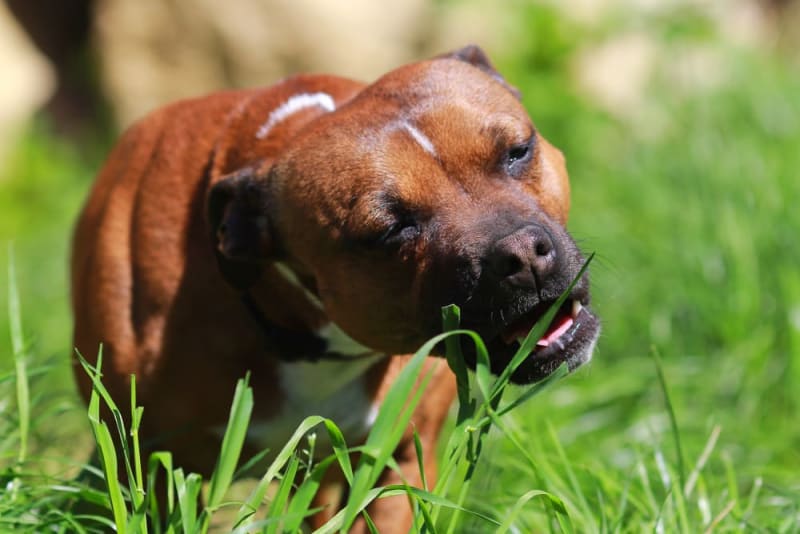Observing your dog swiftly heading towards the grass during your usual strolls can be quite worrisome. After all, grass isn’t a typical component of a well-rounded canine diet.
There’s no need to panic! It’s actually quite common for dogs to consume grass, but the underlying question remains: what prompts this behavior? Lets discuss 4 reasons why your dog eats grass.
Why Is My Dog Eating Grass?
Canine Instincts
It may be difficult to fathom, but your beloved four-legged companion is a descendant of wolves. In the wild, it has been observed that wolves consume grass as a means to supplement their diet.
Consequently, your furry friend might instinctively exhibit this behavior, harkening back to the practices of their ancestors.
Nutrient-Deficient
Canine companions who lack certain nutrients in their diet may resort to consuming grass as a way to compensate for those deficiencies.
If you consistently observe your dog grazing on grass during your walks or playtime in the park, it might be worth considering a dietary change to incorporate a high-fiber variety. This can help address any nutritional gaps and potentially reduce their inclination to seek grass as a supplement.
An Upset Stomach
Both humans and dogs experience upset stomachs. We humans often rely on antacids to relieve such discomfort. For dogs, however, eating grass can serve as a natural way to soothe their upset stomachs, much like the canine version of Pepto Bismol.
Nevertheless, it’s important to note that this natural remedy is only a temporary solution, as vomiting is a common outcome of ingesting grass.
They Want To
Dogs, particularly young puppies, are naturally curious creatures. Just like human children, their inquisitive nature can sometimes lead them to explore and taste grass, simply driven by their desire to experience new sensations.
Should My Dog Eat Grass?
While consuming grass may not pose a significant threat, it still carries some risks. The most prominent risk factor is the presence of harmful pesticides. Pesticides can be toxic to dogs and may result in excessive salivation, vomiting, diarrhea, or loss of appetite.
If you suspect that your dog has ingested grass treated with pesticides, it is crucial to promptly contact your veterinarian for immediate assistance and guidance.

